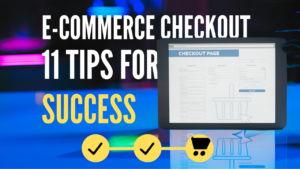
Shopify has become a popular platform for individuals and businesses to launch online stores. With its user friendly interface and extensive features, it offers a relatively low-barrier entry into the world of e-commerce. However, as a Shopify store owner, it’s essential to consider the legal and financial implications of your business structure.
Context:
Starting a Shopify store is undoubtedly an exciting journey into the world of e-commerce. However, taking the important step of forming a business entity can significantly enhance your chances of success. By establishing a formal company, you gain protections that shield your personal assets from business liabilities, lending you greater peace of mind as you operate your store. Additionally, a recognized business structure bolsters your credibility with customers and partners, making it easier to build trust and foster relationships.
Does Shopify require a company?
Shopify does not require you to form a company to start a store. However, incorporating can offer significant advantages such as liability protection, tax benefits, and enhanced credibility. While it’s not mandatory, forming a company can be a strategic move to protect your assets, optimize your taxes, and grow your business. Ultimately, the decision depends on your individual circumstances and business goals.
What are the factors to consider while forming a company for your Shopify store?
When forming a company for your Shopify store, several key factors must be considered to ensure that your business is set up for success.
- Business Goals: Assess your long-term plans for your Shopify store. If you anticipate growth, expansion, or attracting investors, a company structure might be more advantageous.
- Risk Tolerance: Evaluate your risk tolerance. A company can provide a layer of protection for your personal assets.
- Tax Implications: Consult with a tax professional to understand the potential tax benefits and drawbacks of different company structures.
- Administrative Costs: Forming and maintaining a company involves additional costs and administrative burdens.
You may be interested in learning :https://scrowp.com/best-shopify-theme/

The purpose of forming a company for your Shopify store
When launching an online business on Shopify, a crucial decision is whether to operate as an individual or establish a formal company. While starting as a sole proprietor may seem simpler, incorporating offers substantial benefits in terms of liability protection, tax advantages, and opportunities for growth.
1. Limited Liability Protection
When you operate a Shopify store as a sole proprietor, you expose your personal assets to business risks. If your business faces legal action or incurs debts, creditors can pursue your personal assets such as your home and savings to satisfy business obligations. By forming a Limited Liability Company (LLC) or corporation, you create a legal barrier that protects your personal property, limiting your financial risk to what you’ve invested in the business.
2. Credibility with Customers and Partners
A registered business entity often garners more trust from consumers than an unregistered operation. A formal business presence conveys professionalism and reliability, leading customers to feel more secure when making purchases. Furthermore, suppliers, manufacturers, and potential partners typically prefer to work with legitimate companies, enhancing your chances of securing favorable terms and conditions.
3. Tax Benefits
Establishing a business entity can result in multiple tax benefits, depending on how you structure it. For example:
- Deductions: Corporations and LLCs can make use of specific deductions that might not be available to sole proprietors, such as health insurance premiums and retirement plan contributions.
- Tax Strategy: By forming an entity, you can better strategize how to minimize your overall tax burden. S corporations, in particular, can pass their income directly to shareholders, avoiding double taxation.
4. Enhanced Business Growth and Funding Opportunities
A formal business entity opens the door to various funding opportunities. Whether you’re looking to secure a small business loan, attract investors, or offer equity to partners, having a registered company creates a more appealing and trustworthy proposition. Well-defined business structures can facilitate negotiations with banks and investors, making them more likely to support your growth.
5. Improved Business Structure and Operations
Creating a company establishes a clear organizational structure. This delineation is particularly important if you expand to hiring employees or contractors. You’ll need to comply with employment laws, payroll taxes, and benefits having formalized processes in place makes this much easier. Additionally, as your business grows, this structure aids in task allocation, project management, and operational logistics.
6. Access to Business Tools and Banking Solutions
Forming a company grants you access to various business tools and resources tailored for legal entities. Here are some significant benefits:
- Business Bank Accounts: You need a registered business to open a business bank account, which helps keep your personal and business finances separate. This separation is crucial for precise record keeping and tax reporting.
- Merchant Accounts and Payment Processors: Many merchant services require an LLC or corporation before you can obtain an account. These accounts may offer better terms and lower fees than those available to sole proprietors.
7. Establishing Brand Identity
Forming a company allows you to create a distinct brand identity. A registered business can trademark its name and logo, providing legal protection against infringement. A strong brand presence can differentiate your Shopify store from competitors and foster customer loyalty over time.
8. Long-term Vision and Exit Strategy
Creating a structured company enables you to think long-term and to design an exit strategy if you ever decide to sell your business. A well-established business entity can be easier to sell, as it comes with a pre-existing structure, customer base, and often, intellectual property. Buyers tend to prefer established companies with clear legal and financial structures in place.
9. Scalability and Expansion
If you plan to expand your business either by adding new product lines, entering new markets, or implementing marketing strategies having a formal business entity allows for smoother scalability. As your operations grow in complexity, a structured company provides the foundation needed to manage growth effectively.
10. Compliance and Regulation
Operating under a formal company ensures compliance with local, state, and federal regulations, including tax laws, consumer protection laws, and e-commerce regulations. Staying compliant can prevent legal issues that could arise from operating informally, allowing you to focus on growing your Shopify store rather than worrying about regulatory fines or penalties.
Conclusion:
The decision to form a company for your Shopify store depends on your individual circumstances, business goals, and risk tolerance. While there are additional costs and administrative burdens involved, the long-term benefits, such as liability protection, tax advantages, and enhanced credibility, can make it a worthwhile investment. By carefully considering the factors outlined above and seeking professional advice, you can make an informed decision that will set your business up for long-term success.





